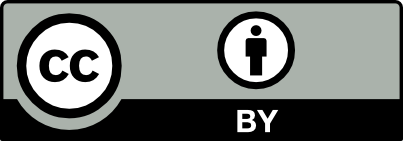Institutional Profile
Front Range Community College has the following mission statement: ``We will develop and maintain relevant programs and partnerships that educate students for viable careers, promote life-long learning, and improve the communities we serve.’’ It is the largest community college in Colorado, with 27,700 students across three campuses: Boulder County, Larimer, and Westminster. It has several common transfer partners, including University of Colorado Boulder, Colorado State University, and Metropolitan State University of Denver. It is one of the 13 member institutions in the Colorado Community College System.
Project Description
Current Readiness
Grant work - Rebecca Woulfe, Kae Novak, and Ed Chusid wrote a successful proposal and were awarded $20,000 by Colorado Open Educational Resources Grant Program. This is part of the Cohort 5 2022/23 cycle by the Colorado Commission on Higher Education (CCHE). These funds are mostly to be doled out as mini-grants to teams interested in OER development and implementation projects. (This is the third such round of mini-grants to be given out at FRCC.)
FRCC currently has several equity projects underway, most notably a pending HSI application and an Equity Academy (paid professional development for faculty wishing to redesign curriculum in a way that fosters equity).
FRCC is in the midst of two massive transformations which present themselves in this context both as opportunities and as challenges. Firstly, Colorado Community College Online decided to stop offering online courses, instead pushing those courses down onto the 13 community colleges that constitute the Colorado Community College System. The other is that internally, FRCC is moving from a model in which its member campuses operate more or less as separate small colleges to a ``One College’’ model in which faculty will be members of single, collegewide academic departments instead of campuswide. There are many yet-to-be-answered questions regarding what course materials will look like after these transformations are complete, hence the simultaneous opportunity/challenge!
With regards to OER, the main challenge comes from the bookstore. We currently have Barnes & Noble managing our campus bookstores, and there is talk of moving to a model in which students do not purchase their own course materials, but instead just have a per-credit fee automatically added onto their bill each semester for their course materials, regardless of whether or not a course uses OER.
Project Lead and Team Members
- Kenneth M Monks (leaving at the end of summer 2023) and Aaron Allen are FRCC mathematics faculty.
- Che Gant is the FRCC Boulder County Campus librarian.
- Kate Monteith is a database developer/analyst in Data Science & Institutional Research at FRCC.
Stakeholder Engagement Plans
Students - An online survey will be developed and made available to all students. It will be incentivized with raffles for small scholarships, paid for by the Hewlett Foundation grant that has been awarded to us.
Practitioners - We will attend employee group meetings, including chair council, faculty affairs council, state faculty affairs council, affiliate instructor organization, and faculty senates. These will be followed up with one-on-one meetings where there is interest in doing so.
Leadership - This part of the project is still under development. The former Cabinet OER sponsor, who was the leader of the FRCC OER Task Force, recently left the college. We contacted her asking for help planning this and hope to hear back soon.
Defining Success
Success will be measured firstly by the extent to which this gap analysis and rubric actualization become useful tools in decision-making in the above-mentioned ongoing transformations at FRCC: new leads, new collegewide chairs, and leadership will hopefully find value in having more definitive answers to what in the past was usually based on more anecdotal knowledge.
Secondly, success will be measured by what follows: actionable items that can help with closing the found gaps. One easy way to measure this could be to make the gap analysis and rubric available to the OER mini-grant application review board: perhaps they will decide to prioritize applications which specifically aim to close found gaps. The number of applications that cite this can be an easy metric by which success can be measured. (Of course, the extent to which those gaps close would be as well, but that would be beyond the timeline of this work.) Much as our faculty plans typically reference the FRCC Strategic Plan or the FRCC Teaching Statement, these mini-grant applications can be guided by the gap analysis and rubric!
Case Study
Your browser does not support viewing this document. Click here to download the document.

